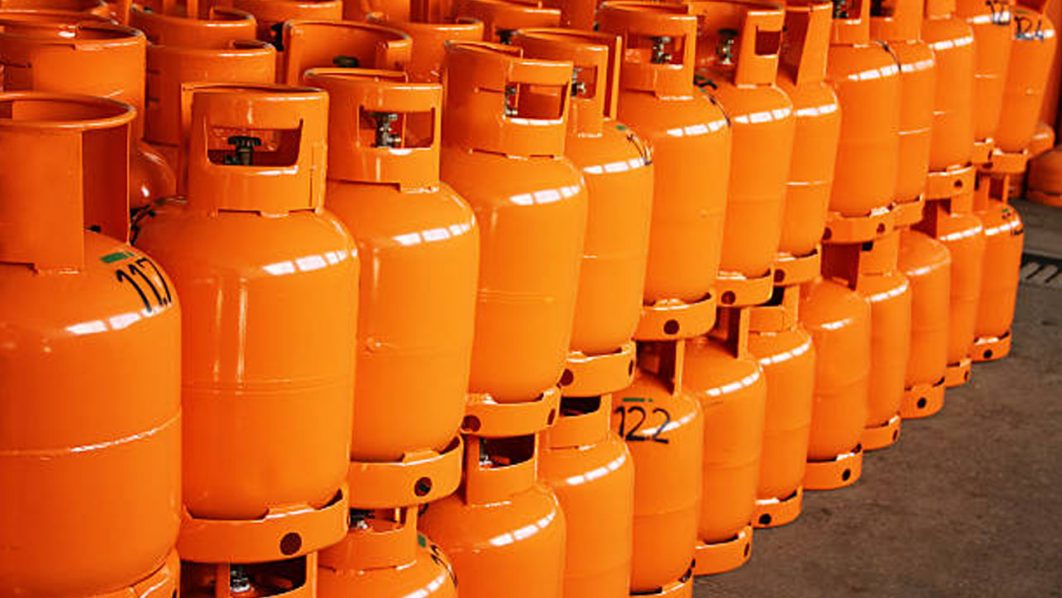
…Cooking gas surges by 78% within a year, kerosene 24.81%
Notwithstanding the high food inflation in the country, Nigerians have continued to contend with the rising costs of making meals either at home or from commercial food vendors, going by the latest prices of gas and kerosene.
In the absence of regular electricity supply, Liquefied Petroleum Gas (LPG) and kerosene are the major sources of cooking fuel for many Nigerians, but the rising costs have seen a growing percentage of households shifting to firewood and saw dust.
The 2019 expenditure pattern report, which measures Nigeria’s spending pattern in both food and non-food items, revealed that of the total, 56.65 per cent of the household expenditure in 2019 was spent on food, with the balance of about 43.35 spent on non-food items.
With a high food inflation and rising cooking fuel costs, the amount spent on food is expected to have doubled, pushing many households into poverty and hunger.
Marketers note that the shortage in the local market is caused by poor supply, as many gas-producing firms prefer to export rather than supply the domestic market due to the price parity.
Currently, the Nigerian LPG domestic market gets 60 per cent of products from import by marketers while a paltry 40 per cent is supplied locally.
Though Nigeria’s inflation rate fell for the eighth consecutive month in November to 15.40 per cent from 15.99 per cent recorded a month earlier, food prices, as well as prices of gas, liquid fuel, transportation costs by air and road, continued to witness a spike.
Indeed, the latest data released by the National Bureau of Statistics (NBS) confirmed concerns about the rising costs of liquefied petroleum gas, otherwise known as cooking gas, as the average cost of buying a 12.5kg cylinder cooking gas in Nigeria spiked by 78.99 per cent on a year-on-year basis from a lower cost of N4,082.97.
In November 2021, the average price of the product was N7,308.06, an increase of 10.09 per cent on a month-on-month basis from a lower cost of N6,638.27 in the preceding month of October 2021.
For kerosene, the cost of buying the product increased by 4.17 percent in November to N441.06 per litre. According to NBS, the average amount paid by Nigerians in November 2021 is also 24.81 percent increase when compared to the N353.38 the product cost in November 2020.
In terms of Zonal variations of prices, the highest price was in the South-East at N541.19, followed by the South -West and North-Central recorded at N470.79 and N444.97 respectively. The North-West Zone had the least price at N363.98 compared to other zones.
A cursory look at the data shows that the price increased to its highest level in over two years. Specifically, a 12.5kg cylinder of household cooking gas increased to its highest since November 2018.
Consumers’ average cost of refilling a 5kg cylinder of cooking gas increased by 26.05 per cent month over month, from N2,627.94 in October to N3,312.42 in November 2021.
The average price of the product per 5kg increased by 70.09 per cent year-on-year, from N1,947.47 in November of last year to N3,312.42 in November of this year.
For 25kg gas, the top three States with the highest prices in November 2021 were Ondo, Oyo and Osun with N8,721.43, N8,648.33 and N8,431.25 respectively.
Conversely, the lowest average prices were recorded in Borno State, Yobe State and Nasarawa State with N5,413.33, N6,300.00 and N6,390.63 respectively.
For the 5kg gas the States with the highest prices in November 2021 were Edo, Cross River and Ebonyi/Jigawa with N3,970.00, N3,933.33 and N3,820.00 respectively, while the three lowest prices were recorded in Gombe State, Bayelsa State and Delta State with N2,033.38, N2,043.55 and N2,196.33 respectively.
The Guardian had reported that though the Federal Government had exempted cooking gas from import duties, the taxes being returned to the product will see the four major importers of the product into the country pay about N27 billion to Nigerian Customs Service (NCS) in the coming weeks.
The President of Nigeria Liquefied Petroleum Gas Association (NLPGA), Nuhu Yakubu, said the group is currently engaging the government to address all the necessary issues, including access to foreign exchange, value-added tax, levies, among others, hoping that their efforts will yield positive results in good time.
He said: “The high prices of LPG have shifted the demand for firewood and charcoal, thus fuelling desertification and erosion with a very negative impact on the environment.”



